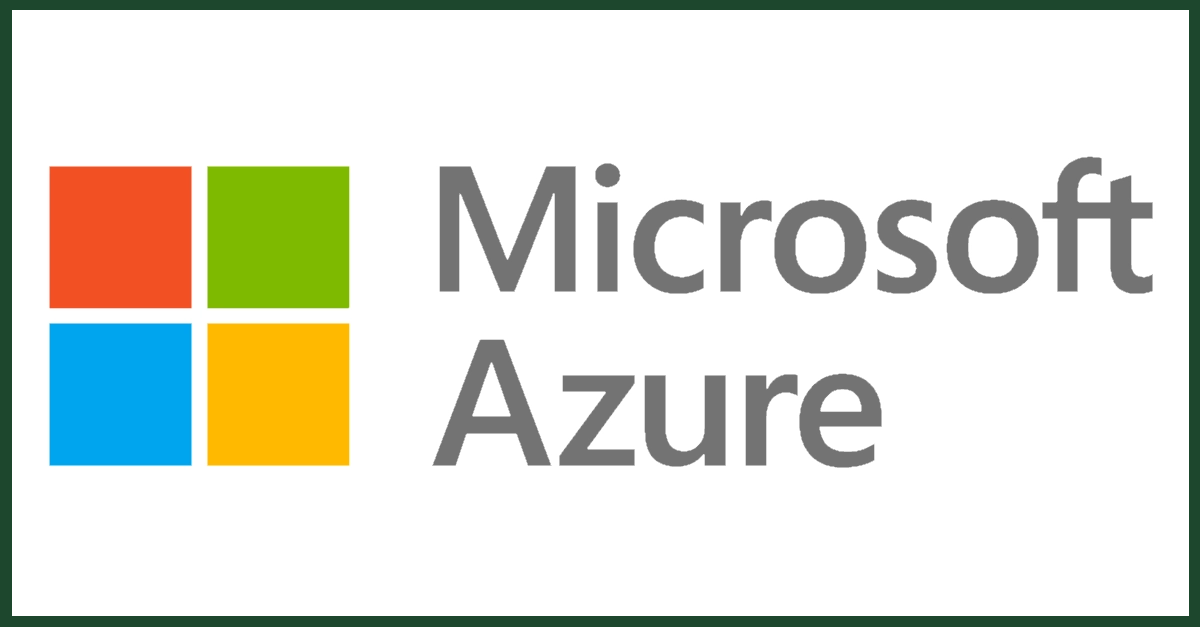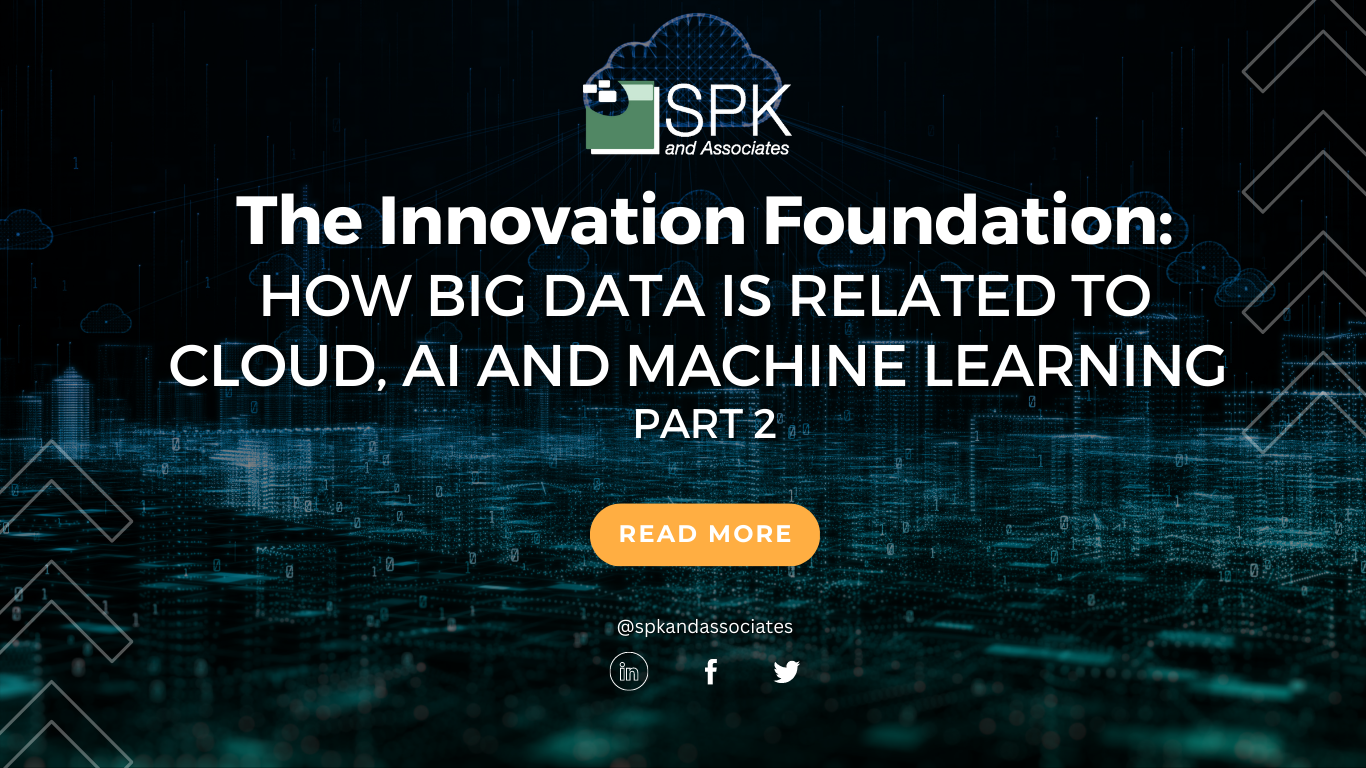In part one of this series, we covered the significance of data collection and reviewed different big data platforms. For example, Hadoop and Apache Spark. We also covered the importance of selecting the right platform to achieve desired outcomes. And finally, we explored the maintenance of these platforms in the context of ML and AI. Now, in part two of the series, we’re focusing on how cloud services leverage big data, machine learning and Artificial Intelligence (AI). So, by the end of this blog, you’ll have a clear understanding of how big data is related to cloud services like AWS and Azure.
Recap: What Is Big Data, Cloud, Machine Learning and AI?
Big Data
|
Cloud
|
Machine Learning
|
Artificial Intelligence (AI)
|
How Big Data Is Related To Cloud
As you can see, the four are deeply intertwined. And together, these solutions provide scalability, flexibility, and cost-effectiveness. So, yes: big data is related to the cloud intrinsically. It enables organizations to explore various machine learning models and algorithms too. So, let’s unpack that a bit further.
Cloud-based machine learning and AI solutions offer the advantage of utilizing vast amounts of data stored in the cloud through platforms like Amazon Web Services (AWS) and Azure. And with access to massive data repositories, you can train models and algorithms. Additionally, the availability of pre-built models and algorithms can significantly reduce development and training time and resources. Lastly, by integrating with other cloud-based services, such as data storage and analytics, you can capitalize on comprehensive data management and utilization.
Essentially, these solutions bring scalability, task automation, data-driven decision-making, and enhanced security measures such as being able to mitigate potential threats. Plus, it allows for the allocation of efficient resources.
There are plenty of cloud providers out there, but we are going to focus on the two market giants: AWS and Azure. However, the general principles in this blog remain the same regardless of your cloud provider.
AWS and Azure Cloud Solutions
Cloud computing platforms like AWS and Azure have revolutionized businesses and their goals. Need to build an application or a website? You can do that with the cloud. Train a new learning model to better interact with your customers? You can do that too. Scale your infrastructure up and down at the drop of a hat without buying physical infrastructure. Yes, you guessed it. Cloud’s a powerhouse for these reasons and more.
Big data, machine learning, and AI have improved tremendously because of the capabilities offered by cloud providers like AWS and Azure.

AWS
AWS provides a suite of services for machine learning and big data. Amazon SageMaker, Amazon Rekognition, and Amazon Comprehend are machine-learning tools that simplify model development and deployment. Services like Amazon EMR, Amazon Kinesis, and Amazon Redshift enable the processing and analysis of large datasets. Whilst storage solutions such as Amazon S3 and Amazon Glacier facilitate data management. And, services like Amazon Glue offer ETL capabilities, while Amazon Athena allows SQL-based analysis of data stored in Amazon S3.
Azure
Microsoft Azure offers a range of services for machine learning and big data. Azure Machine Learning, Azure Cognitive Services, and Azure Databricks simplify the creation, training, and deployment of machine learning models. Big data services like Azure HDInsight, Azure Stream Analytics, and Azure Data Factory enable the processing, storage, and analysis of extensive data. Storage solutions such as Azure Blob Storage and Azure Data Lake Storage provide efficient data storage and retrieval capabilities.
Machine Learning
There are three main types of machine learning. Therefore, understanding these types of machine learning will help you to build an effective model. By selecting the best approach, you can better improve predictions, uncover insights, or enable complex decision-making.

- Supervised learning involves training a model on labeled data to make accurate predictions. It is used when a clear relationship exists between input and output variables, such as in image recognition.
- Unsupervised learning trains models on unlabeled data to discover patterns and relationships. It is useful when there is no predefined output, helping uncover insights and structures within the data.
- Reinforcement learning trains models to make decisions based on feedback from the environment. It is employed in situations where the input-output mapping is complex. For example, in robotics.
Machine Learning Applications
Cloud-based ML solutions such as AWS and Azure facilitate the adoption of ML technology. And, applications for Machine Learning already span multiple industries, including finance, healthcare, retail, and manufacturing. Here are some examples:
- Fraud Detection: Analyze financial data to identify fraudulent transactions, learning patterns and flagging unusual activity.
- Predictive Maintenance: Analyze sensor data to predict maintenance needs in industrial equipment, reducing downtime and costs.
- Personalized Marketing: Analyze customer data to create tailored marketing campaigns, learning preferences and recommending relevant products/services.
- Medical Diagnosis: Analyze medical images and patient data, aiding doctors in diagnosing diseases by recognizing patterns.
- Speech Recognition: Analyze speech signals to recognize words and phrases, employed in digital assistants like Siri and Alexa.
- Autonomous Vehicles: Analyze sensor data in real-time, enabling object identification and decision-making in self-driving cars.

Machine Learning in the Cloud
If you’re seeking insights and informed decision-making, then Machine Learning in the cloud is a good investment. It leverages the cloud’s computing power and storage capacity to efficiently train and deploy machine learning models. The AWS and Azure solutions such as Amazon SageMaker and Azure Machine Learning, simplify the adoption of cloud-based ML. This approach eliminates costly hardware investments, allows scalability, and enables DevOps teams to focus on model development and deployment. Ultimately, cloud-based machine learning enables businesses to rapidly iterate, improve models, and harness the benefits of AI and big data.
How Big Data Is Related To Cloud, Artificial Intelligence And Machine Learning
Types of AI
There are three types of AI commonly used in the industry at this time:
- Reactive Machines: Basic AI that relies on present information for decision-making, without memory or past experiences. Used in straightforward decision processes where complex reasoning is unnecessary.
- Limited Memory AI: Machines capable of storing and recalling past experiences to inform decision-making. Applied in tasks like speech recognition, where recognizing patterns and interpreting speech accurately require past conversation recall.
- Self-Aware AI: Advanced AI that not only stores past experiences but also forms new ideas and concepts based on that data. Self-aware AI learns, adapts, and makes decisions through experience, with the potential to transform human-machine interaction.
By using big data related to cloud services, AI can be trained through Machine Learning for continuous improvement.
Applications of AI
AI is transforming industries with diverse applications. Here are just a few examples:
- Image and Speech Recognition: Interpreting human language and visual data accurately, benefiting healthcare, automotive, and retail. For instance, it helps diagnose diseases through medical image analysis and enables hands-free operation in cars.
- Predictive Analytics: Utilizing historical data, statistical algorithms, and machine learning to predict future outcomes. For example, finance, healthcare, and manufacturing use this technology to identify at-risk patients for early intervention.
- Chatbots: AI-powered virtual assistants interact with customers naturally. Additionally, they provide product recommendations and answer queries in industries like retail, banking, and healthcare.
- Autonomous Vehicles: AI-based sensors and algorithms are the backbone for self-driving cars. It can improve transportation by reducing accidents and optimizing traffic flow.
- Fraud Detection: Highly regulated industries like finance use AI to detect and prevent fraudulent activities. Machine learning algorithms analyze vast amounts of data to identify anomalies that indicate potential fraud.
Implementing Big Data Related To Cloud-Based Machine Learning and AI at Scale
Traditional on-premises solutions can be expensive and complex to scale, requiring additional resources. But, Cloud-based solutions offer a flexible and scalable environment for ML and AI workloads.
AWS and Azure Scaling Solutions
When it comes to AWS vs Azure, both offer various scaling solutions for machine learning and AI applications. AWS provides Auto Scaling, Elastic Load Balancing, and AWS Lambda. Conversely, Azure offers Azure Autoscale, Azure Load Balancer, and Azure Functions. Therefore, these solutions enable businesses to automatically adjust capacity, distribute traffic, and run code in response to events, ensuring optimal performance and cost efficiency. By scaling with cloud-based ML and AI applications, and leveraging these solutions from AWS and Azure you can:
- Enhance application performance, availability, and scalability
- Improve customer experiences and increase revenue.
Security and Compliance in Cloud-Based Machine Learning and AI
It’s no secret that businesses need to protect sensitive data from unauthorized access. Or that compliance with regulations like HIPAA and GDPR is non-negotiable. But, performance and scalability are equally important. Therefore, this necessitates horizontal scalable compute resources and vertical scalable storage. So, your DevOps and IT teams need to collaborate with security and compliance teams to implement certain measures.
AWS and Azure Security Solutions
Security and compliance are crucial in cloud-based ML/AI. Best practices include using MFA, implementing access controls, encrypting data, monitoring the environment, using compliance frameworks, conducting audits, and training employees. Both AWS and Azure can provide you with gold-standard security-focused solutions. The following solutions enable you to control user access, monitor API activity, manage cryptographic keys, and create private networks.
AWS:
- Identity and Access Management (IAM).
- Virtual Private Cloud (VPC).
- Security Groups.
- CloudTrail.
- Key Management Service (KMS).
Azure:
- Azure Active Directory (AAD).
- Azure Security Center.
- Virtual Network (VNet).
- Azure Firewall.
- Azure Key Vault.
How Big Data Is Related To Cloud-Based Machine Learning and AI In The Future
1. Future Developments in AWS and Azure Solutions
The future of cloud-based machine learning and AI solutions in AWS and Azure is promising. You can expect to experience:
- Integration with IoT devices will enhance data collection and analysis capabilities.
- Services like Amazon SageMaker Edge Manager and future offerings from Azure will enable deploying ML models to edge devices.
- Automation of machine learning workflows. Services like Amazon SageMaker Autopilot and upcoming solutions from Azure will streamline model training and tuning.
- Performance and scalability improvements are also anticipated, as both providers invest in hardware and software technologies.
- AWS’s new ML instances offer enhanced performance, and Azure’s hardware accelerators will be a force to be reckoned with.
These developments indicate an ongoing commitment to delivering more powerful and sophisticated solutions for organizations to derive greater value from their data.
2. Opportunities for DevOps and IT Professionals
DevOps and IT professionals can leverage AWS and Azure solutions to unlock new insights and efficiencies at scale. However, there are key considerations to maximize the benefits.
- Understanding business goals is imperative for aligning machine learning and AI tools with strategic objectives.
- Data management is another vital aspect, ensuring accurate and accessible data through processes and collaboration with data scientists.
- Infrastructure and deployment optimization is essential for efficient performance and scalability.
- Integration with existing workflows and processes is also important.
- Seamless incorporation of machine learning and AI into systems and tools will better enable automation and augmentation of decision-making.
To succeed, you’ll need DevOps to plan strategically, focus on data management, optimize infrastructure, and integrate workflows. Taking a holistic approach unlocks the potential of cloud-based machine learning and AI, driving significant business value.
Additionally, the growing demand for skilled professionals in big data, cloud computing, and machine learning offers career advancement, better job prospects, and job security.
The Future Is Cloud
Cloud-based machine learning and AI have revolutionized IT and DevOps. Natural language processing (NLP) enables chatbots and sentiment analysis, while deep learning powers image and speech recognition. With enhanced cybersecurity through anomaly detection and predictive analysis, cloud-based ML/AI benefits industries like healthcare, finance, and transportation. It provides insights from patient data, detects fraud, and optimizes transportation. Organizations embracing cloud-based ML/AI stay ahead in the digital age, benefiting from its potential across various sectors. The scalability, flexibility, and cost-effectiveness of cloud-based solutions enable accessing ML/AI power without expensive infrastructure investments. By leveraging these technologies, organizations gain valuable insights for informed business decisions that drive growth and success.
If you need help deciding which cloud provider is better for your business between AWS vs Azure. You can contact our team here.
Stay tuned for part three of our Innovation Foundation series to learn more on big data, cloud, machine learning and AI.






